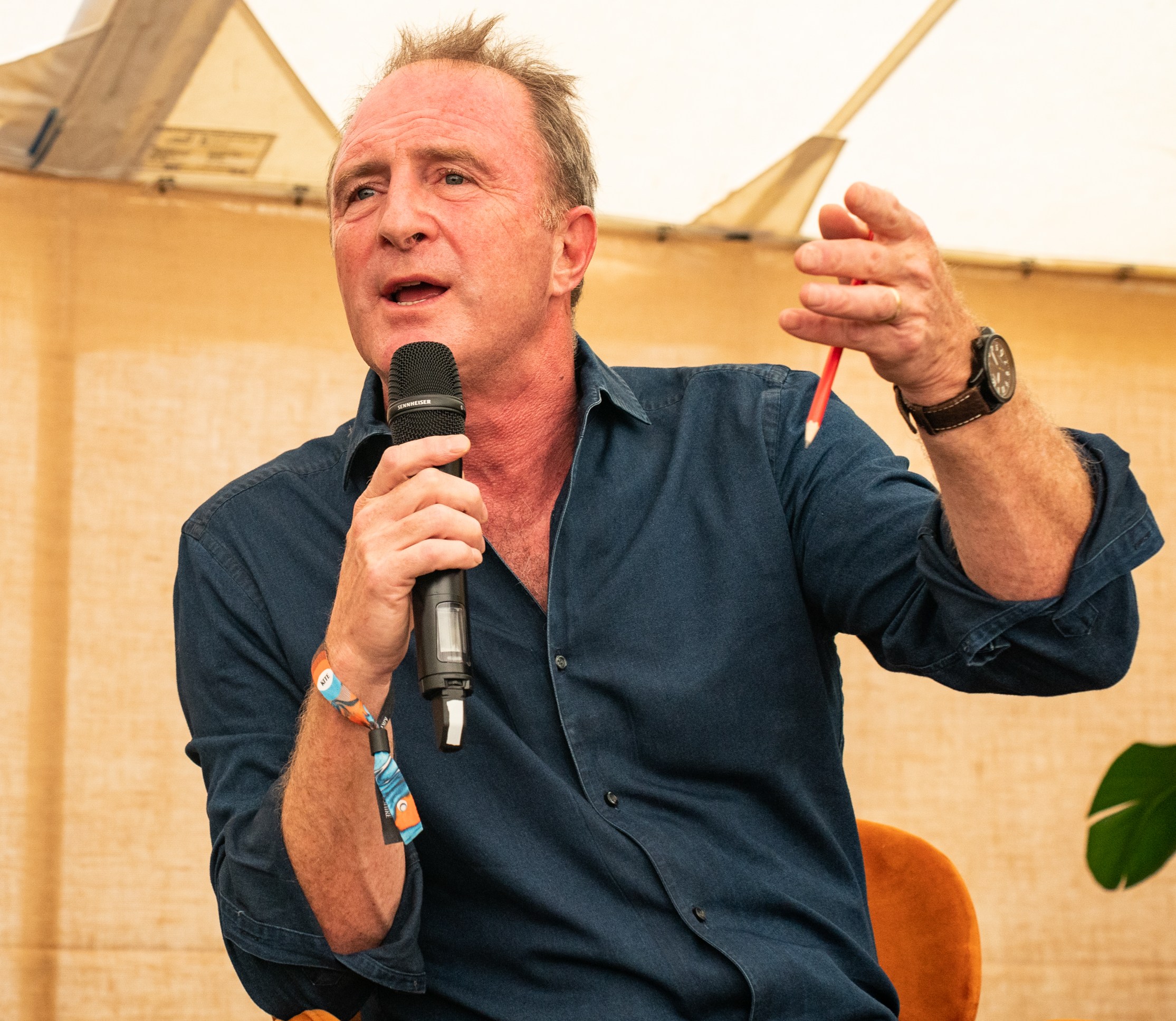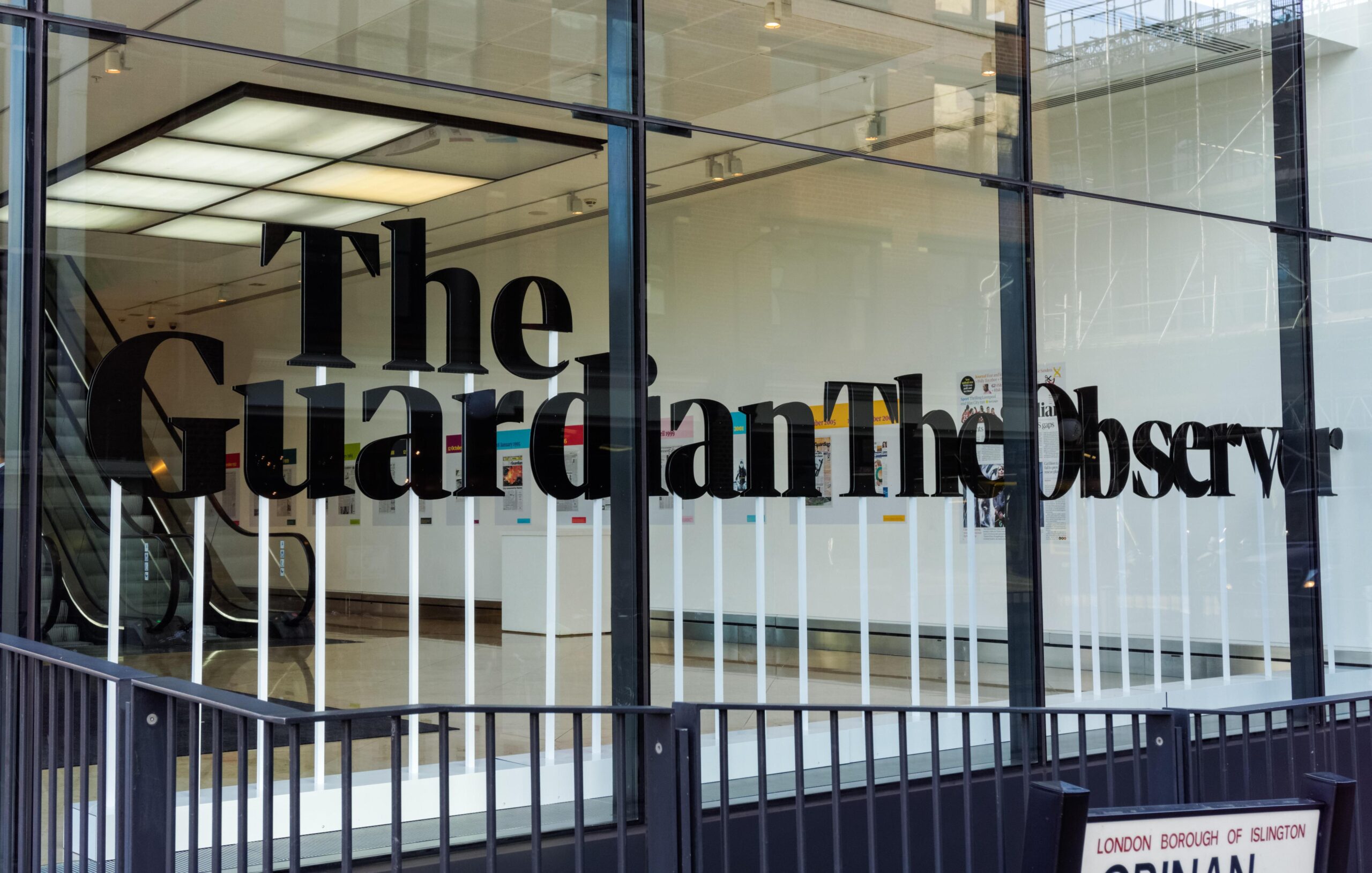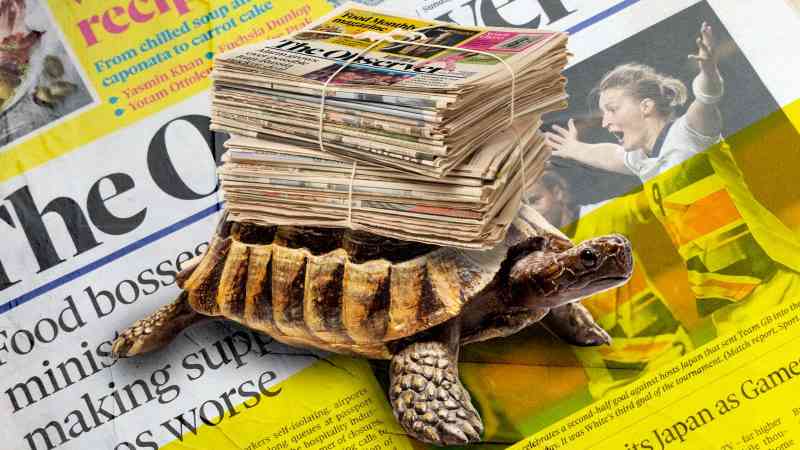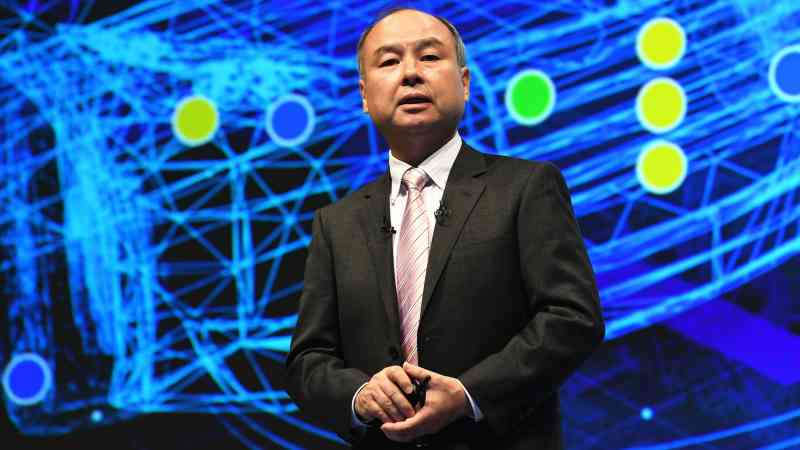What does ‘slow news’ startup Tortoise have in store for The Observer?
It is 31 years since The Guardian bought The Observer, marking a union of two historic liberal institutions. But to some, the world’s oldest Sunday newspaper has never quite felt welcome at The Guardian.
Roger Alton, a former longstanding Observer editor who retains friends in the newsroom, said there had long been a suspicion that Guardian bosses viewed his old newspaper “as being like that mad person in the attic in Jane Eyre”. Alton led the newspaper between 1998 and 2007, a period in which it had a circulation topped 400,000 and launched several successful supplements. He said The Observer always felt like “something they had to put up with, rather than embrace. Now they just want to get The Observer off their hands.”
The Observer might not be lurking in the canal-side north London offices of The Guardian for much longer. Last week brought the news that Tortoise Media, a start-up that specialises in podcasts, had entered exclusive negotiations to buy The Observer.
• Guardian Media Group in talks to sell The Observer
Although Tortoise made its first approach late last year, staff were caught unawares and are now in revolt amid fears over job security. Rivals are trying to work out why Tortoise is interested — and how a loss-making media start-up expects to turn a 233-year-old loss-making newspaper into a sustainable business. “I can’t get my head round it,” was the verdict of one industry chief executive. “I’m not sure what the rationale is.”
Founded in 2018 as a “slow news” antidote to the 24-7 media cycle, Tortoise has won industry acclaim for its podcasts and “think-in” events, whereby guests can contribute to debates in the newsroom. However, the company, led by James Harding, a former editor of The Times and director of news and current affairs at the BBC, has never made a profit. In 2022, the latest year for which figures are available, it made revenues of £6.2 million and an operating loss of £4.6 million.
The company is chaired by Matthew Barzun, 53, a former US ambassador to the UK, and counts Nick Jones, 60, the founder of Soho House, as a director. He provides advice on subscriptions, having built Soho House into an international chain.
Its largest shareholders include David Thomson, who chairs the news and financial data company Thomson Reuters; the hedge fund Lansdowne Partners; the venture capital firm LocalGlobe; and the investment firm of Robby Enthoven, the boss of Nando’s. Tortoise is raising more money, from existing and new investors, to fund its Observer plans.

Harding’s vision is to make The Observer his main brand and emulate the success of The Atlantic, a 167-year-old American magazine that recently turned a profit for the first time in years after building up a base of a million print and digital subscribers. Speaking to The Sunday Times, Harding declined to provide an estimate on when his combined company would become profitable.
Harding, 55, who has spent much of his career as a foreign correspondent, wants The Observer to continue to build on its international, business and sports coverage, much of which comes from Guardian journalists. “We want The Observer to have its own correspondents and reporters on those beats,” Harding said.
He plans to build up The Observer’s online presence. Harding said the physical newspaper also remained “hugely valuable to this whole proposition; one, as an important shopfront for your journalism; and two, as a platform for advertising”. Harding’s commitment to print will surprise many because newspaper printing and distribution will add significantly to Tortoise’s costs. Last week, amid growing print expenses, London’s Evening Standard stopped distributing a daily newspaper.
• Oliver Shah: The media kaleidoscope has been shaken. Quality digital news will win
The Observer is reckoned to have a print circulation of about 100,000, down from a peak of about 1.3 million in 1979. The Guardian’s average print run is likely to be smaller, but it stands as one of the world’s largest news websites, having established itself in the US market. Ipsos Iris estimates that it had 22 million UK online readers in July. Last year, the company made print reader revenues of £67 million, down 3 per cent, while its digital reader revenues — from app subscriptions and donations — were £88 million, up 8 per cent. Its advertising revenues, across print and digital, came to £62 million, down 13 per cent.
Tortoise and The Guardian are still ironing out the details of their deal and it is unclear to insiders how staff of The Guardian and The Observer will be separated after years of internal mergers. Harding said there could be a “transition period, which might take some time”, where The Observer newspaper includes some work from Guardian journalists and contributors. In the longer term, he wants to invest in building The Observer newsroom so it can stand alone.
Tortoise is pledging to retain the current operating costs of The Observer while also pumping in £25 million over the next five years. The Guardian has indicated that Tortoise’s financial commitments to the title are one reason why it is entertaining a bid; it wants to find a good steward for the paper. But the newsroom is far from convinced.
Guardian and Observer journalists who are union members held an emergency meeting last Wednesday, the day after they learnt of the Tortoise talks, and issued a statement opposing the deal and expressing a statement of “no confidence” in the Scott Trust, the newspapers’ not-for-profit owner.

Observer staff fear the move into a smaller company will compromise their job security; and their Guardian colleagues, many of whom spend a large portion of their week working for the Sunday title, worry about further cuts for them after a recent round of voluntary redundancies.
For The Guardian, the financial motivation for jettisoning The Observer is clear. The company reported a loss last week of £36.5 million in the year to March. Although it is difficult to break out figures for The Observer, most insiders recognise that it has long been a loss-maker.
The media operation is owned by the Scott Trust, a company named after CP Scott, the former Guardian editor and owner, which uses a large endowment fund to absorb losses and reinvests profits into journalism. In the owner’s annual report last week, the chairman, Ole Jacob Sunde, a Norwegian media entrepreneur, made clear that the Scott Trust was “not there to fill gaps in annual operating budgets… and we must be honest about areas of the business that are not part of our future growth and adapt”.
Douglas McCabe, a media expert at Enders Analysis, reckons The Observer has “been a bit of a headache for The Guardian for some time”. He added: “It’s an elegant solution, from that point of view.”
The counterargument from company management is that, after a 31-year marriage, The Guardian and Observer may now be better off apart. Their troops will take some convincing.




Post Comment